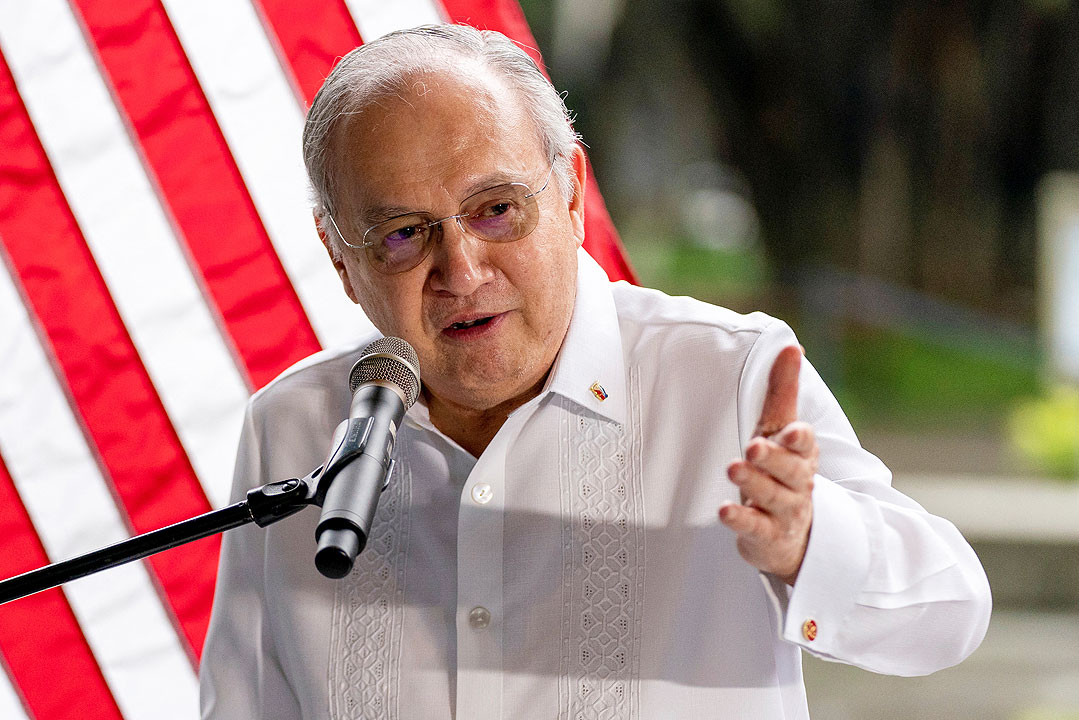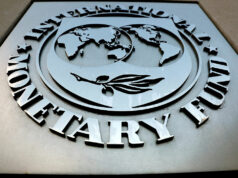US firms interested in PHL but want more conducive environment — Romualdez

US COMPANIES are now more interested in investing in the Philippines due to its stronger-than-expected economic growth but want a more conducive business environment, Philippine Ambassador to the United States Jose Manuel D. Romualdez said.
“US companies are now more than ever looking at the Philippines… The business community here said they didn’t realize how the economy has continued to grow despite the pandemic, while most countries have a downturn trend. So that’s very significant,” Mr. Romualdez said in an April 14 interview with BusinessWorld in Washington, D.C.
The Marcos administration’s economic team touted the Philippine economy’s gains during an April 12 briefing attended by around 180 representatives from US companies and industry groups.
The economy expanded by 7.6% last year, its fastest growth rate since 1976. It exceeded the government’s 6.5-7.5% goal and was better than the 5.7% growth a year earlier. This year, the government is targeting 6-7% gross domestic product growth.
John F. Maisto, president of the US-Philippines Society and a former diplomat, said the Philippines is now sending a message that it is open for “serious” foreign investments.
“This forum has pointed out the fact that today’s reality is very positive for the Philippines in terms of attracting foreign investments. They laid out the policies, the geopolitical realities, the quality of the Philippine working population…, particularly young Filipinos who speak English and are educated well, are ready to be employed and trainable,” Mr. Maisto said on the sidelines of the April 12 Philippine economic briefing.
Asked if there are any concerns, Mr. Maisto said investors want to ensure there is the “best possible atmosphere” in the Philippines before making any commitments.
“They want the best possible legislation, the best possible guarantees, and this is the challenge for the Philippines. Happily, President (Ferdinand R.) Marcos (Jr.), from the very beginning of his administration, has emphasized publicly that the Philippines has to do much more than it has done in the past in terms of attracting foreign investments,” he said.
International Monetary Fund (IMF) Deputy Director of the Asia and Pacific Department Sanjaya Panth said in a separate interview that the Philippines should work on further easing some regulations and foreign investment limits.
“I think the Philippines has more room to go to make investment more attractive to foreign investors. [But] it seemed to me that the government was quite committed and very interested in attracting the necessary investment. I did see a pretty good reception,” Mr. Panth said.
Recent reforms include amendments to the Public Service Act, which allows full foreign ownership in telecommunications, domestic shipping, railways, subways, airlines, expressways, tollways, and airports.
For his part, Mr. Romualdez said the economic managers have vowed to make the business environment more conducive to foreign investments.
“The government is investing a lot in infrastructure, both digital and hard infrastructure… All that will translate into more interest. It’s now up to us to be able to catch that eh. This is an opportunity that happens not too very often and right now we’re right at that sweet spot,” he said.
The Philippine embassy is now looking to attract investments in key sectors such as energy, digital infrastructure and semiconductors.
Mr. Romualdez said there are also several US companies that are expanding in the Philippines.
“We’re happy to say that Moderna, for instance, they’ll start with a commercial office first in the Philippines. FedEx has moved their facilities, and they have a big facility now in Clark,” he said.
‘SAFE PLACE’
Many businesses consider the Philippines a “safe place” to invest amid tensions between the US and China, Mr. Romualdez said.
“Our relationship with the United States, it’s one of the best, obviously, because of the agreements that we’ve had on the defense side… Because of the current situation, the political situation in China. So, they will look at places where they feel it’s much safer and the Philippines is one of them,” he said.
The US and the Philippines recently expanded the Enhanced Defense Cooperation Agreement (EDCA). EDCA is a supplementary deal to the 1999 visiting forces agreement, which allows the US to rotate troops in the Philippines and build and operate facilities on agreed locations for both their military forces.
“This is another opportunity for us, because the publicity that we’ve been getting here in the United States has been positive, in terms of our defense ties, and that ties into what we want which is more economic activity,” Mr. Romualdez said.
Mr. Marcos is set to hold talks with US President Joseph “Joe” R. Biden, Jr. in Washington D.C. on May 1 to discuss areas of cooperation in defense and security, climate change and digitalization, among others. — Keisha B. Ta-asan



